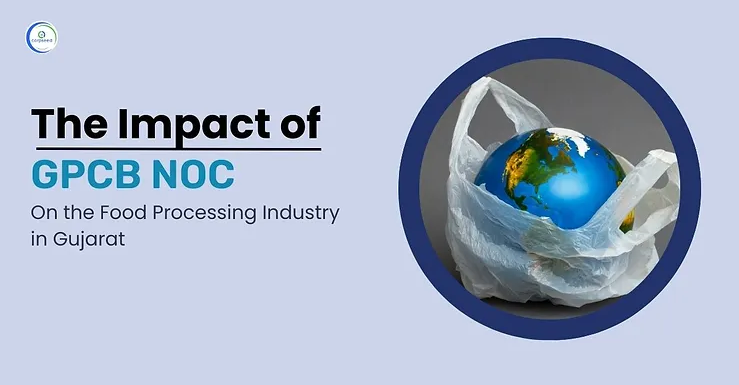The Impact of Gpcb Noc on the Food Processing Industry in Gujarat

Introduction
Gujarat, a pivotal hub in India's industrial landscape, is renowned for its vibrant food processing sector. However, behind the scenes of this thriving industry lies an essential factor that significantly influences its operations - the GPCB NOC (Gujarat Pollution Control Board No Objection Certificate). The issuance and adherence to this certification play a pivotal role in shaping the landscape of the food processing industry in the region.
The Role of GPCB NOC
The GPCB NOC acts as a regulatory instrument, emphasizing environmental conservation and pollution control within the food processing sector. It's a mandatory certification that businesses need to obtain before establishing or expanding operations. This certificate signifies compliance with stringent environmental norms and ensures that the industry operates in harmony with ecological preservation.
Impact of GPCB NOC on Industry Operations
Quality Standards
GPCB NOC necessitates adherence to specific quality standards and pollution control measures. Industries must implement advanced technology and efficient processes to mitigate pollution levels, thereby enhancing the quality of products.
Sustainability and Innovation
Businesses striving to obtain GPCB NOC often innovate to incorporate sustainable practices. This drive for sustainability not only fulfills regulatory requirements but also fosters innovation within the industry, leading to the development of eco-friendly practices.
Market Competitiveness
Having the GPCB NOC distinguishes companies in the market. Consumers today are increasingly conscious of environmental issues. Therefore, businesses holding this certification gain a competitive edge by demonstrating their commitment to environmental responsibility.
Economic Implications
While obtaining the GPCB NOC may involve initial investment and operational adjustments, the long-term economic benefits are substantial. Reduced environmental impact can lead to cost savings, improved efficiency, and access to global markets that prioritize eco-friendly products.
Challenges of GPCB NOC Faced by the Industry
Complex Regulatory Procedures
The process of obtaining GPCB NOC can be intricate and time-consuming. Industries may face challenges in navigating the regulatory landscape, especially if they are not well-versed in environmental compliance requirements.
Financial Implications
Implementing the necessary measures to meet GPCB standards may involve a significant financial investment. This can pose challenges, particularly for small and medium-sized enterprises within the food processing sector.
Benefits of obtaining GPCB NOC
Market Credibility
GPCB NOC enhances the industry's credibility, signaling to consumers, investors, and stakeholders that the food processing units operate responsibly. This can lead to increased market share and consumer trust.
Long-Term Sustainability
Compliance with environmental norms ensures the long-term sustainability of the food processing industry in Gujarat. By adopting eco-friendly practices, these industries contribute to the state's environmental conservation efforts.
Conclusion
The GPCB NOC stands as a pivotal factor in shaping the operational landscape of Gujarat's food processing industry. Its imposition sets a standard for environmental responsibility, fostering innovation, and driving sustainable practices within the sector. Compliance with these regulations not only enhances product quality but also bolsters market competitiveness, leading to long-term economic benefits.